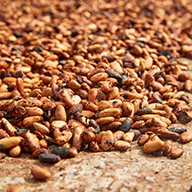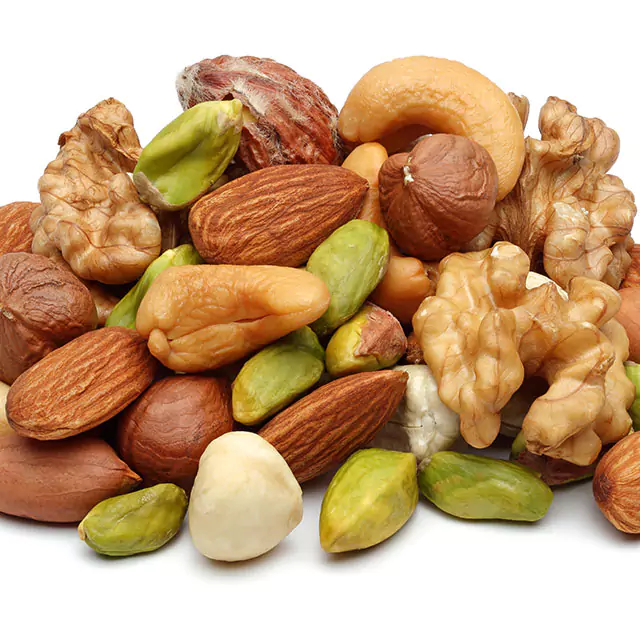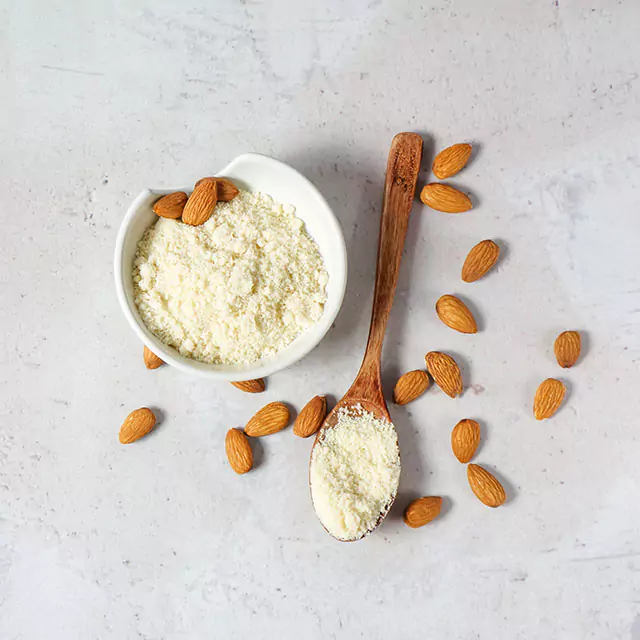Create with us and grow your business
We love bringing new concepts and fresh ideas to life. Explore our portfolio where we can offer ingredients that are good for consumers and good for farmers. From bars to beverages, we bring expertise across cocoa, coffee, dairy, nuts and spices.
Chocolate bar. Two words that make mouths water. How can you unleash the potential of this classic treat? Use our vast experience on the farm and in the food lab. Low-sugar, plant-based, sustainable and traceable. With our cocoa butter, cocoa powder, cocoa liquor and cocoa beans, you can deliver what today’s consumers expect.
Chocolate all over. The right compound coating can transform a good product into an irresistible one. Together, we select the cocoa powders and confectionery fats you need, optimized for your specific recipe. Let our ingredients support your development of the most delicious and stable products possible.
There's nothing quite like biting into a treat with a perfectly smooth and satisfying filling, praline or inclusion. We help you select the right cocoa powder, cocoa liquor, cocoa butter and nut pieces or pastes to surprise and delight your customers. Then we support you turning it into fillings for bars and tablets that fly off the shelves.
Sweet spreads are exploding in popularity. Think beyond just toast – add a spoon and now it's a snack. Capture a slice of this exciting market by partnering with us to create flavorsome, satisfying recipes. Why not pair some of our delicious nuts with our premium cocoa ingredients?
The success of your chocolate and confectionery products depends on the quality of the cocoa ingredients and nuts. From unlocking healthy indulgence to creating a sustainable impact, learn how ofi and our ingredients can make your next chocolate and confectionery innovation real.
Inspiration
Sensory satisfaction, premiumization or plant-based ingredients: what is your next challenge? Our ingredients portfolio offers near endless natural, nutritious and delicious possibilities for new product development across categories. Learn more about some of our latest chocolate and confectionery application innovations.
A growing appetite for sweet spreads plus the ever-expanding plant-based market equals a huge opportunity for confectionery brands. That’s why we created a concept for a plant-based chocolate hazelnut spread that replaces milk powders with high roasted hazelnut flours. A creamy, rich hazelnut taste without the dairy.
What could possibly be better than a vegan chocolate bar made with our rich cocoa powder and filled with our macadamias, pistachios or hazelnuts? Rich, crunchy and sweet. Use cashew and almond defatted flour as a replacement for milk-based ingredients in great tasting chocolate mass.
Truffles have never been so eye-catching. With our extra white cocoa butter, color contrasts can be taken to new vivid heights. The perfect visual match for rich and indulgent fillings like hazelnut praline, dulce de leche and coffee, or caramel, lemon and ginger.
Different origins offer signature sensory profiles. Our concept for a premium dark Ghana 65% cocoa chocolate bar oozes indulgence with its thick tablet and fruity flavor profile unique to Ghanaian origin cocoa. It also leans on the potential of single-origin cocoa for giving consumers greater choice and traceability.
Read ofi news
By Andrew Brooks, Head of Cocoa Sustainability, olam food ingredients (ofi)
This week, the world’s attention turns to a heavy burden that can damage a child’s Health and Education: child labour. In ofi's cocoa business, we are focused on solving this problem every day.
Most child labour in cocoa relates to children carrying out hazardous tasks on the family farm, distinct from the much rarer issue of forced labour, and has no one cause. Labour laws can be misunderstood, and schools might be located far away. Even if there is a school nearby, children may not have the documents they need to enrol. When combined with rural poverty, many parents think their child’s time is best spent helping on the farm. And now, these cocoa-growing communities are also battling a global health pandemic.
We’re working to tackle each of these challenges in turn. Under our Cocoa Compass sustainability ambition, we aim to completely eradicate child labour from our direct supply chain by 2030 and ensure farmers’ children can access the education they are entitled to. In 2020, we reached the critical milestone of rolling out child labour monitoring across 183,000 households in nine countries.
There is still a lot to do, and collaboration with our customers, national governments, and civil society is essential. For example, we recently asked the Fair Labor Association (FLA) to assess the extent to which cocoa farmers and their families have benefited from our sustainability programmes in Côte d’Ivoire, their perception and satisfaction with these interventions, and help to refine our approach further.
Using a due diligence methodology called Social Impact Assessment, the FLA collected extensive data and interviewed over 450 people from ten cocoa communities, including women and children. It found that of all our efforts to tackle child labour, the setting up of child labour monitoring and remediation and enabling access to education are the most advanced and have the most significant impact.
It also revealed that over two-thirds of those interviewed think child labour is on the decline in their community, and 80% believe that the interventions by ofi and our partners are contributing to protecting children.
There are areas for improvement. The FLA suggested we provide additional support to help farmers access affordable labour. And ensure greater follow-up with Village Savings and Loans Associations to maximise their ability to promote child protection.
We know that combining our efforts through multi-stakeholder partnerships, championed by local and regional governments, and supported by international finance institutions, is the best way to create the kind of long-term systemic change needed to reach universal school attendance
and graduation for children in cocoa communities.
This World Day Against Child Labour reminds us that if we want to put children first in cocoa, we must be open to testing new approaches and adapting our efforts based on what works best. The future of a cocoa generation is at stake if we don’t.


















